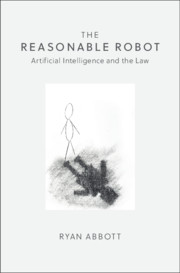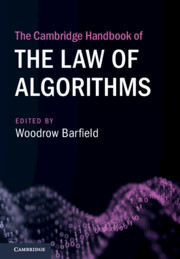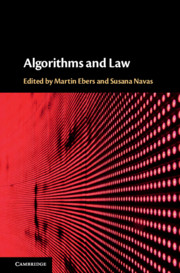Autonomous Organizations
- Author: Shawn Bayern, Florida State University
- Date Published: October 2021
- availability: Not yet published - available from
- format: Paperback
- isbn: 9781108813853
Paperback
Other available formats:
Hardback, eBook
Looking for an inspection copy?
This title is not currently available for inspection. However, if you are interested in the title for your course we can consider offering an inspection copy. To register your interest please contact [email protected] providing details of the course you are teaching.
-
Under current business law, it is already possible to give legal personhood, or a very close surrogate of it, to software systems of any kind (from a simple automated escrow agent to a more hypothetical, truly smart artificial intelligence). This means that, for example, robots could enter into contracts, serve as legal agents, or own property. Ultimately, entire companies could actually be run by non-human agents. This study argues that this is not as scary as it might sound at first. Legal theorist and noted software developer Shawn Bayern argues that autonomous or zero-person organizations offer an opportunity for useful new types of interactions between software and the law. This creative contribution to the theory and practice of law and technology explores the social and political aspects of these new organizational structures and their implications for legal theory.
Read more- Demonstrates how functional legal personhood can be given to software systems, such as artificial intelligence, under laws that already exist
- Shows ways in which complex algorithms can interact with the legal system
- Explores the implications for law of the flexibility of modern legal organizations, including the development of 'autonomous' organizations
Reviews & endorsements
'Autonomous Organizations is a testimony to the versatility and innovation of private law. A true masterpiece, pragmatic and down-to-earth in style, it firmly installs Shawn Bayern at the forefront of twenty-first century legal thinking. A must read not just for corporate lawyers, but for anyone interested in modern legal practice.' Thomas Burri, Professor of International Law and European Law, University of St. Gallen, Switzerland
See more reviews'Shawn Bayern's Autonomous Organizations, focuses on explaining how current law actually applies to systems that are becoming more and more autonomous and artificially intelligent. In the book, he provides a rich, thoughtful, and careful analysis of the topic; thus, the book is highly relevant to practitioners and academics. I highly recommend the book.' Woodrow Barfield, Professor, Engineering and Law
Customer reviews
Not yet reviewed
Be the first to review
Review was not posted due to profanity
×Product details
- Date Published: October 2021
- format: Paperback
- isbn: 9781108813853
- length: 190 pages
- dimensions: 230 x 151 x 10 mm
- weight: 0.3kg
- availability: Not yet published - available from
Table of Contents
1. Why Autonomous Organizations? 2. The Legal Role of Algorithms
3. In the Company of Robots: The Creation of Autonomous Organizations
4. The Legal Viability of Autonomous Organizations
5. The Advantages of Autonomous Organizations
6. The Limitations and Legal Implications of Autonomous Organizations
Conclusion.
Sorry, this resource is locked
Please register or sign in to request access. If you are having problems accessing these resources please email [email protected]
Register Sign in» Proceed
You are now leaving the Cambridge University Press website. Your eBook purchase and download will be completed by our partner www.ebooks.com. Please see the permission section of the www.ebooks.com catalogue page for details of the print & copy limits on our eBooks.
Continue ×Are you sure you want to delete your account?
This cannot be undone.
Thank you for your feedback which will help us improve our service.
If you requested a response, we will make sure to get back to you shortly.
×



